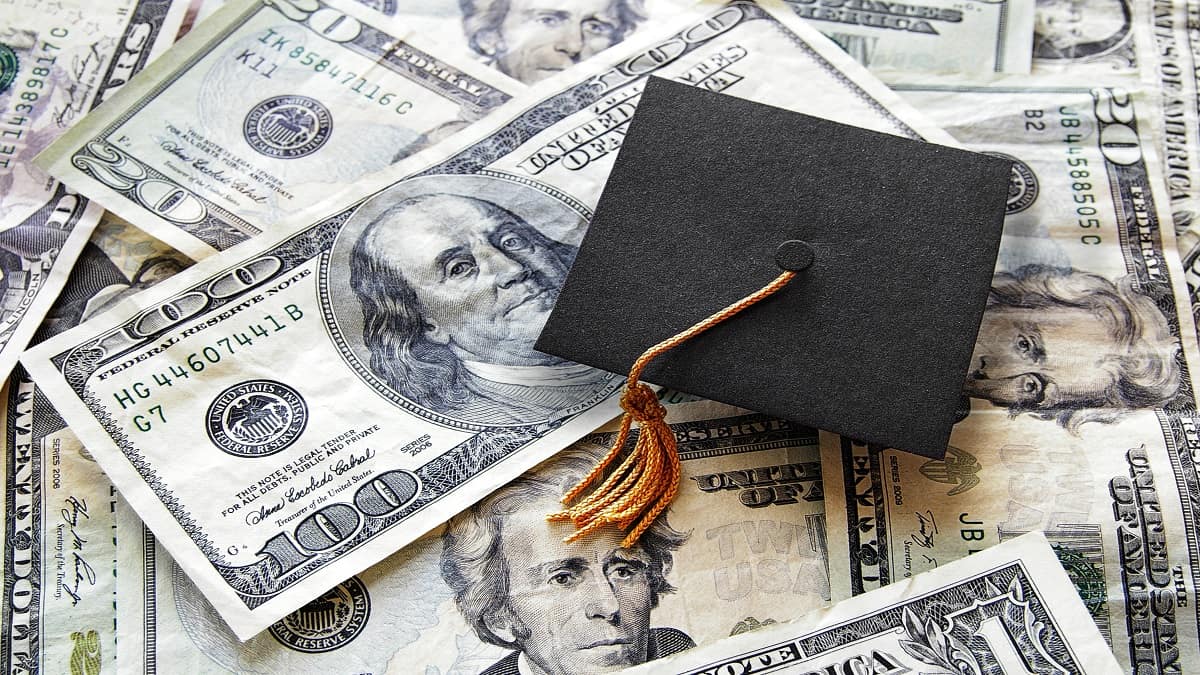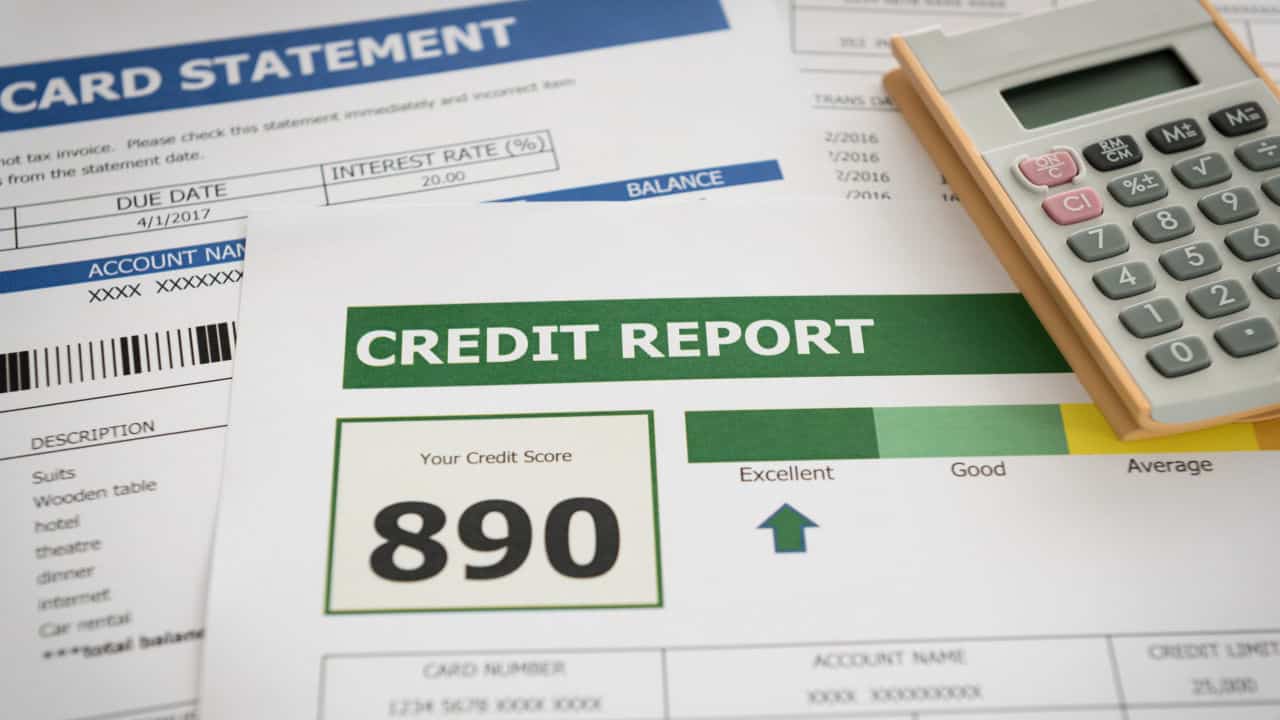THIS POST MAY CONTAIN AFFILIATE LINKS. PLEASE SEE MY DISCLOSURES. FOR MORE INFORMATION.
Financial advice abounds in a wide range of online spaces, making it all the easier to fall for terrible advice that only makes your financial situation more difficult to navigate.
But what exactly is bad financial advice? What’s floating around that you should make a conscious effort to avoid?
We’ve scoured the web to see what people are offering up as financial advice that might be harmful. Here are 23 bad pieces of financial advice people still believe.
1. You Should Never Use Credit Cards

We’ve all seen how ruinous credit card debt can be when spending goes unchecked. Many people have an irrational fear of credit cards, telling others they should avoid them at all costs. The reality?
Credit cards are a necessary form of debt to build your credit. As long as you make sure you’re spending responsibly and paying your debt off on time, you should be fine!
2. Avoid the 9-to-5 Grind

Too many out there say that you can’t make money in a 9-to-5 and instead should start a business if you want to get anywhere in life. The problem with this line of thinking is that the majority of people aren’t going to succeed when starting a business.
Moreover, businesses require far more risk and lack the stability most people crave. While it might be an avenue for some, it’s definitely not the financial payout that everyone thinks it is.
3. Retirement Isn’t Something You Need to Think About When You’re Young

People want to let young adults be young adults and worry about certain things later. But when it comes to retirement, you should start planning for this as soon as possible.
Compound interest is a thing, and you need to start early to make sure that you have a sizeable nest egg when it does finally come time to retire.
4. Save As Much Money As You Can

Are you just saving your money? You may have heard that it’s the safest way to store your hard-earned cash and that certain savings accounts, like a high-yield savings account, would help you grow your wealth.
While there’s a kernel of truth here, the reality is that you’re actually losing money if you’re just saving your cash. Always set aside as much as you need for emergencies and savings goals, then invest the rest.
5. Make Minimum Payments to Spend Less Money

Whether it’s a credit card or a loan payment, you might hear that meeting the minimum payment is enough, helping you save more money. It’s true that you’re spending less, but there’s one caveat: the interest is continuing to grow.
If you’re not careful, you’re just building up a debt you’ll never be able to pay off in this lifetime. Pay as much as you can to tackle the principal and interest.
6. Just File for Bankruptcy

If you’re in a tricky financial situation, you might hear, why not file for bankruptcy? It seems like the perfect way out; for some, it is.
However, bankruptcy stays on your credit report, and it’s not useful for the things you need it for, like student loans or unpaid taxes.
7. Buy an Annuity Rather Than Gamble Your Money

An annuity offers fixed payments in retirement, which can be extremely helpful when you’re living on a fixed income with Social Security and you need to pad your income.
It’s even more effective when you mix annuities with other retirement accounts. But should you just go with an annuity and avoid investing like some say?
An annuity is good, but it can be expensive and won’t provide you with nearly as much support as you need during your golden years. As with anything else related to wealth-building, it’s best to diversify.
8. You Get What You Pay for With Investments

You’ll likely come across investment accounts with high management fees when shopping around for investments. Many will tell you this is a good sign, as the greater expense indicates greater quality. But is this true?
Actually, you might be wasting money that you won’t see returned. High fees don’t necessarily equal high rewards. Think long and hard and compare accounts before you commit to the most expensive one.
9. Stop Spending Money on Non-Essentials

There will be extreme times when you have to stop spending money like you normally do. However, some say that going into crisis mode and skipping all unnecessary expenses all the time is the best way to build financial security and stability.
If you’re making money, you should be allowed to spend some of it on things you want. Restricting yourself to the point of only paying for essentials will make you miserable. Money should always be a tool to help you live life rather than a source of stress that leaves you in survival mode.
10. All Debt Is Bad

Debt can be bad at times. However, is it always bad, like some may tell you? If you carry debt to buy a home, invest in a small business, or even get a car, debt is not bad.
It’s only when it grows out of control and leaves you in a worse financial position. Debt is a necessary part of life. It’s neither good nor evil. It is what you make of it.
11. Tax Refunds Are Bad

Believe it or not, some people will tell you that tax refunds are bad. They argue this is the case because refunds are essentially loaned money you only get back because the government owes you.
True, that may be money you never needed to let go of in the first place. But with that in mind, it’s a nice chunk of change that many look forward to. Tax refunds aren’t bad!
12. 401(k) Matching Is the Best Strategy

Does your employer offer 401(k) matching as part of your benefits? This is exciting, but you might want to wait before you pull the trigger. While you should take advantage of this, consider other accounts like a Roth IRA first.
The latter offers more benefits, and you can always max it out before you move on to your 401(k). When it comes to retirement, strategy is crucial.
13. You Can Only Pay Off Debt or Invest, But You Can’t Do Both

Clearing any existing debt is important, but should that mean that it should come at the cost of your investing activity? Many will say that it should. However, you can do both.
Doing this makes sure that your debt is getting cleared while you’re working towards a more stable financial future by investing. It’s important to multitask where possible to get better results.
14. A College Degree Is an Essential Investment

Most people are told when they’re young that college is something they have to do if they want to be successful. Let’s be clear: college can be a must for some people. But it doesn’t always pay off. Even when it comes to specialized degrees, things like employee demand, job requirements, and other factors can get in the way.
Take time to consider whether a college degree is the right investment or if there’s something else that’s a better fit.
15. If You’re Not Making Money, You’re Wasting Your Time

Hustle culture is everywhere. You’ve probably been overloaded with memes and videos telling you that you need to hustle 24/7 if you ever want to succeed. All this will do is leave you feeling burnt out and unable to be productive.
If you want to make money and be successful, you need to give yourself time to rest and recover. Too much of anything is never a good thing.
16. Budgets Don’t Work

Have you ever been told to give up on budgeting? It’s something that’s floating around out there, but you should never buy into it. Do some forms of budgets not work?
Certainly, for specific people. If one type of budget isn’t working for you, look for another strategy that better fits your situation and needs.
17. A Good Credit Score Is Everything

A good credit score is great! But it’s not what’s necessarily going to get you to the next level in life. More than your credit score, most are looking at your credit report and other areas of your finances.
If you have a good credit score but limited income, you might not immediately get approved for a loan or an apartment. A good credit score is fantastic, but overall financial stability and a strong positive payment history are better.
18. Investing Is Always Risky
Investment does carry some risk, but it’s not necessarily high risk. Some investments, like cryptocurrency or art, are very high risk. Meanwhile, stocks, bonds, or CDs are on the lower end of the risk spectrum.
Don’t think that all investing will put you at risk of bankruptcy. Investing is great; you just have to be smart about it.
19. Everyone Needs Life Insurance

We have to buy all kinds of insurance policies to navigate modern life, so it stands to reason that we’d need life insurance, too, right?
Life insurance is only necessary for those who have dependents who might need support should they pass away. If you don’t have anyone who relies on you, you almost certainly don’t need to pay into life insurance.
20. Do Anything You Can to Lead Your Best Life

On one end of the spectrum, you have people to tell you to spend no money. On the other end of the spectrum, you have people telling you to do whatever you want to secure your dream life. As such, more and more people are getting loans and using credit to finance their lifestyle. The end result? They will end up with a mountain of debt that prevents them from getting somewhere.
Do what you can with the money you have. Don’t go into debt trying to lead a lifestyle you can’t enjoy.
21. Renting Is a Waste of Your Money

Rather than arguing about the need for housing and the lack of affordability and options, we will look at this from another viewpoint. Renting isn’t a waste of money if you can’t buy a house right now. Housing requires you to stay somewhere permanently, and it requires a lot of savings.
If it’s not possible for you right now, renting is certainly not a waste of your money. Don’t commit to such a major investment without thinking about the potential consequences.
22. You Should Only Buy Bonds and CDs

Bonds and CDs are safer investments, but should they be your only investments? Investing your money only into safe assets like these can result in extremely slow growth (if not complete stagnancy or loss of money).
They should play a role in your investment strategy, but diversify and invest money in assets that will grow your wealth.
23. A Dropshipping Business Is the Best Way to Make a Quick Buck

Every year, there’s a new trend on how to get rich quickly (with consultants and coaches making the most money tricking you into buying their products to get there).
The most common one now is dropshipping. Some people have found success with dropshipping, but it’s entirely saturated at this point, and it’s much more complex and much less lucrative than most are led to believe. Always do your research before you start a new side hustle.
Get Paid to Do Nothing

The dream is to get paid to not work.
But the reality is we have to work. But what if there were jobs that were so simple, it didn’t feel like work?
Here is how you can get paid to do close to nothing at all.
Make Money While You Sleep

Yes, you can make money while you sleep. There are a handful of jobs out there that will earn you an income even after you stop working for the day.
The trick is finding the right one for you.
HOW TO MAKE MONEY WHILE YOU SLEEP
I have over 15 years experience in the financial services industry and 20 years investing in the stock market. I have both my undergrad and graduate degrees in Finance, and am FINRA Series 65 licensed and have a Certificate in Financial Planning.
Visit my About Me page to learn more about me and why I am your trusted personal finance expert.


